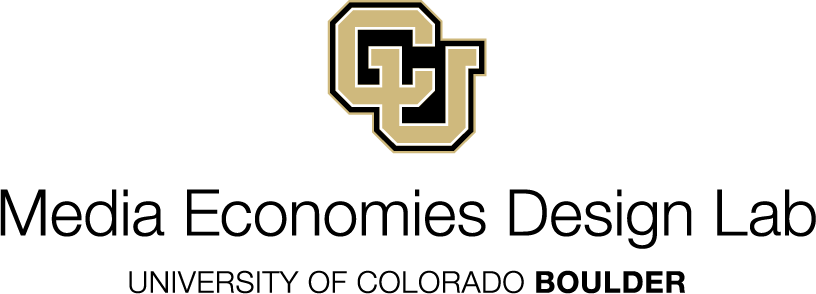Governable Spaces is out today!
 Today MEDLab director Nathan Schneider's new book Governable Spaces is available free and open access from University of California Press, and for purchase in print wherever books are sold. It threads together the research agenda that has been driving MEDLab in recent years, and more.
Today MEDLab director Nathan Schneider's new book Governable Spaces is available free and open access from University of California Press, and for purchase in print wherever books are sold. It threads together the research agenda that has been driving MEDLab in recent years, and more.
“This visionary book points a way to scrapping capitalist realism for community control over our digital spaces. Nathan Schneider generously brings together disparate wisdom from abolitionists, Black feminists, and cooperative software engineers to spark our own imaginations and experiments.”—Lilly Irani, author of Chasing Innovation: Making Entrepreneurial Citizens in Modern India
Get your free digital copy Governable Spaces here.
Nathan will be doing events on the book in the next few days—please consider joining if you can:
- “Governable Spaces: Book Launch Seminar,” Metagovernance Seminar (virtual: February 28, 2024)
- “Is Social Media Finally Decentralizing?” Web3 Social Mini Summit, ETHDenver (Denver, CO: February 28, 2024)
- “Governable Spaces: Tech for Democratic Communities,” Brooklyn Public Library (Brooklyn, NY: March 2, 2024)
- “Book Brunch with Nathan Schneider,” Prime Produce (New York: NY: March 3, 2023)
- “Toward Governable Spaces” (keynote), Decentralized Social Media Workshop, Princeton University (Princeton, NJ: March 4, 2024)
Keep up on future events and press coverage on the book page here.
Next week: Ruha Benjamin in Boulder
Ruha Benjamin of Princeton University, one of the most influential thinkers on technology and race working today, will be speaking at CU boulder on Wednesday, March 6. Her talk is titled, "From Artificial Intelligence to Collective Wisdom: Who Gets to Design the Future?"
From everyday apps to complex algorithms, technology has the potential to hide, speed, and deepen discrimination, while appearing neutral and even benevolent when compared to racist practices of a previous era. In this talk, Ruha Benjamin presents the concept of the “New Jim Code” to explore a range of discriminatory designs that encode inequity: by explicitly amplifying racial hierarchies, by ignoring but thereby replicating social divisions, or by aiming to fix racial bias but ultimately doing quite the opposite. This presentation takes us into the world of biased bots, altruistic algorithms, and their many entanglements, and provides conceptual tools to decode tech promises with historical and sociological insight. She will also consider how race itself is a tool designed to stratify and sanctify social injustice and discuss how technology can be used toward liberatory ends. In doing so, Ruha challenges us to question not only the technologies we are sold, but also the ones we manufacture ourselves.
Radio: Rachel O'Dwyer on tokens

MEDLab's radio, Looks Like New, comes out the fourth Thursday of every month on KGNU, 88.5 FM, or online as a podcast.
This month, MEDLab research fellow Adina Glickstein spoke with Rachel O'Dwyer on the question "What exactly are tokens, anyway?"
Rachel O’Dwyer is a writer and researcher whose work looks at digital economies and culture. Her writing touches on online transactions, art markets, programmable money, and alternative currencies. Rachel’s work probes the social and political landscapes that these technologies bring into being.
She serves as a lecturer in digital cultures at the National College of Art and Design in Dublin, Ireland. Her first book, Tokens: The Future of Money in the Age of the Platform, was published in 2023.
Rachel’s work digs into the complexity of financial exchange. How especially in the digital era, payment and the platforms and tools that we use to do it bring different social relations into being. Her work offers an ethnography of sorts, drawing on real-life research she’s conducted into money burners and Bitcoin fanatics.
Follow the show wherever you get podcasts, as well as on Instagram, Mastodon, and X.


